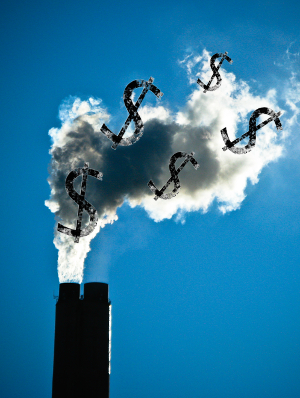Key tax for green future
 Economists have laid out bold moves to reposition Australia in the global shift towards a low-carbon economy.
Economists have laid out bold moves to reposition Australia in the global shift towards a low-carbon economy.
Spelling at the National Press Club, Ross Garnaut and Rod Sims have proposed a levy on fossil fuel production that they say could generate $100 billion in its first year.
This levy, essentially a tax targeting exporters and importers of fossil fuels such as coal, gas, oil, and diesel, has ignited a heated debate, a sign of the contentious nature of carbon taxation in Australia's political landscape.
The federal government, the Nationals, business groups, and the fossil fuel industry have swiftly dismissed the proposal. The Greens have expressed their support, highlighting the divisive nature of the issue.
The fossil fuel levy is intended to fund a significant acceleration in Australia's transition to renewable energy, alongside subsidising low-carbon manufacturing and offering cost-of-living relief to consumers.
Garnaut underscored the urgency and opportunity presented by the global transition to net-zero emissions, saying; “We can use it to raise productivity and living standards after the decade of stagnation”.
“Other countries do not share our natural endowments of wind and solar energy resources, land to deploy them, as well as land to grow biomass sustainably as an alternative to petroleum and coal for chemical manufacture.
“In the zero-carbon economy, Australia is the economically natural location to produce a substantial proportion of the products currently made with large carbon emissions in Northeast Asia and Europe.”
The proposal is based on the principle that polluters should compensate for the environmental damage they cause.
With global commitments to achieve net-zero emissions by 2050, carbon taxes are already widely used as an efficient means to reduce greenhouse gas emissions.
Despite the policy's potential benefits, the term “carbon tax” remains politically sensitive in Australia, following more than a decade of so-called ‘climate wars’ - fuelled largely by those clinging to older, less efficient forms of energy, often for ideological reasons under the guise of technical ones.
Internationally, the concept of pricing carbon is increasingly common, with mechanisms like the European Union's ‘carbon border adjustment mechanism’ set to penalise carbon-intensive imports from 2026.
Such policies underscore the global trend towards penalising emissions and the need for Australia to align its economy with low-carbon production to maintain its competitiveness in global markets.
Critics of the levy argue that linking it to the EU's carbon price could make Australia vulnerable to external economic fluctuations. However, the potential to generate substantial revenue for domestic reinvestment presents a compelling case for the levy's adoption.
The full address can be seen in the video below.







 Print
Print